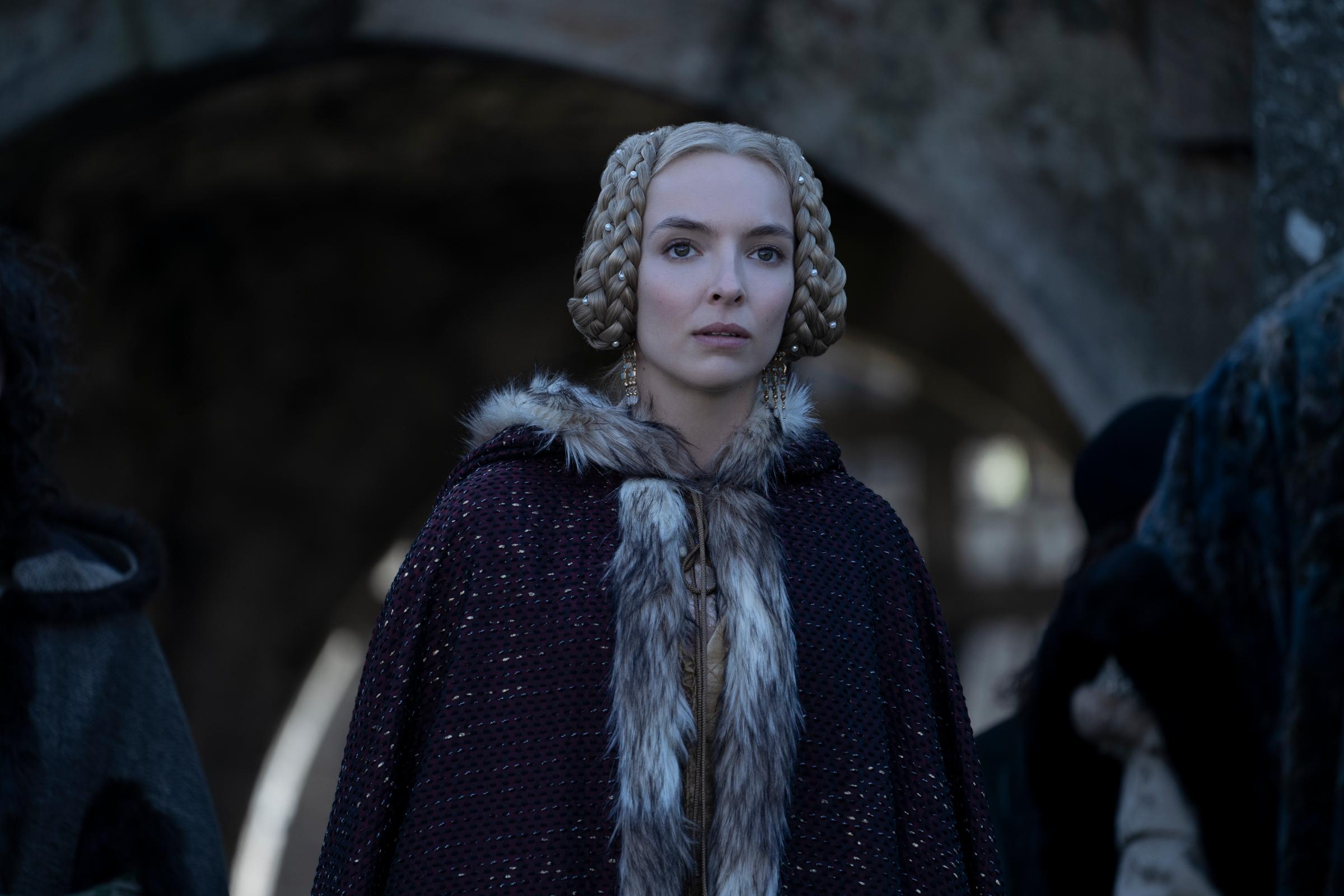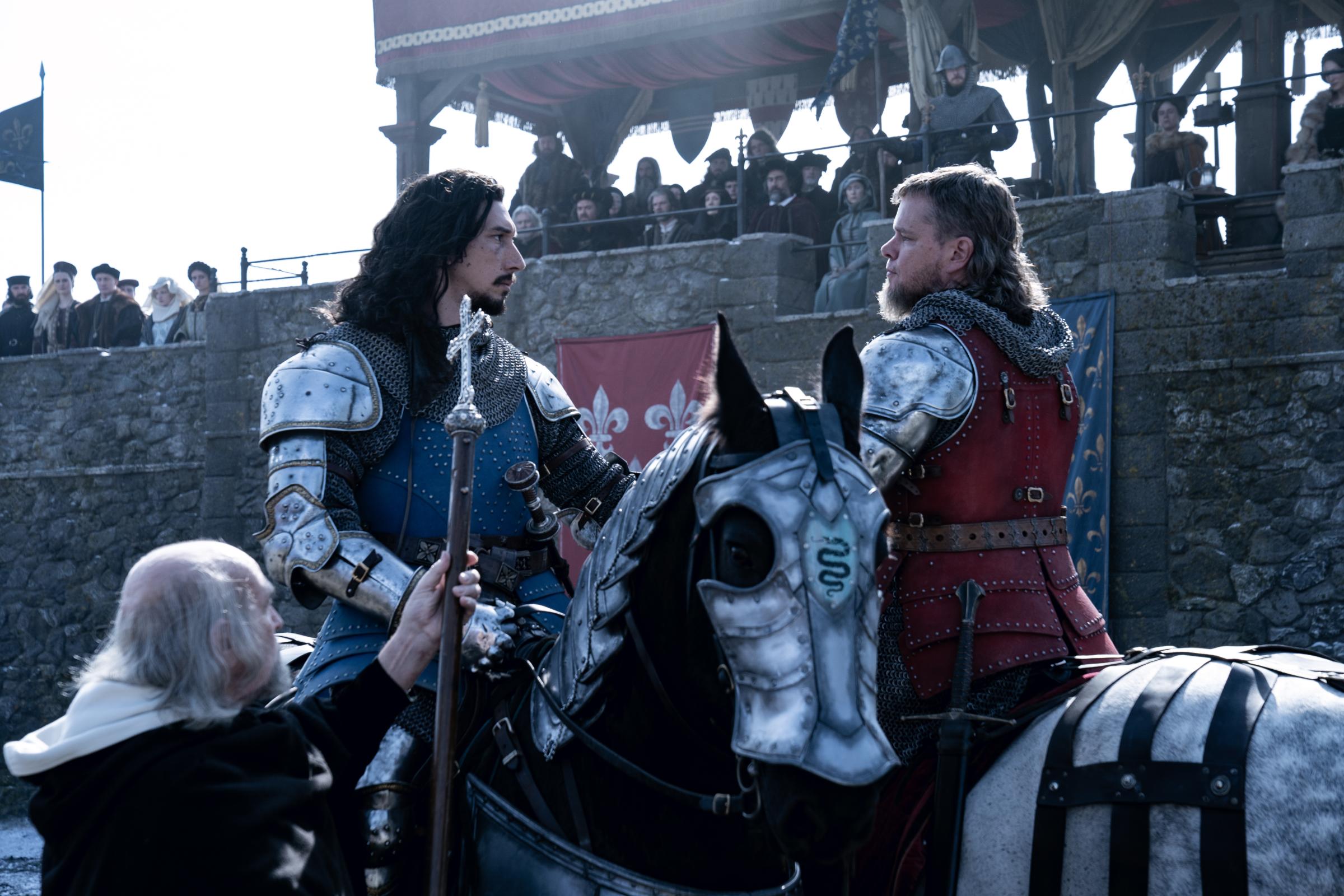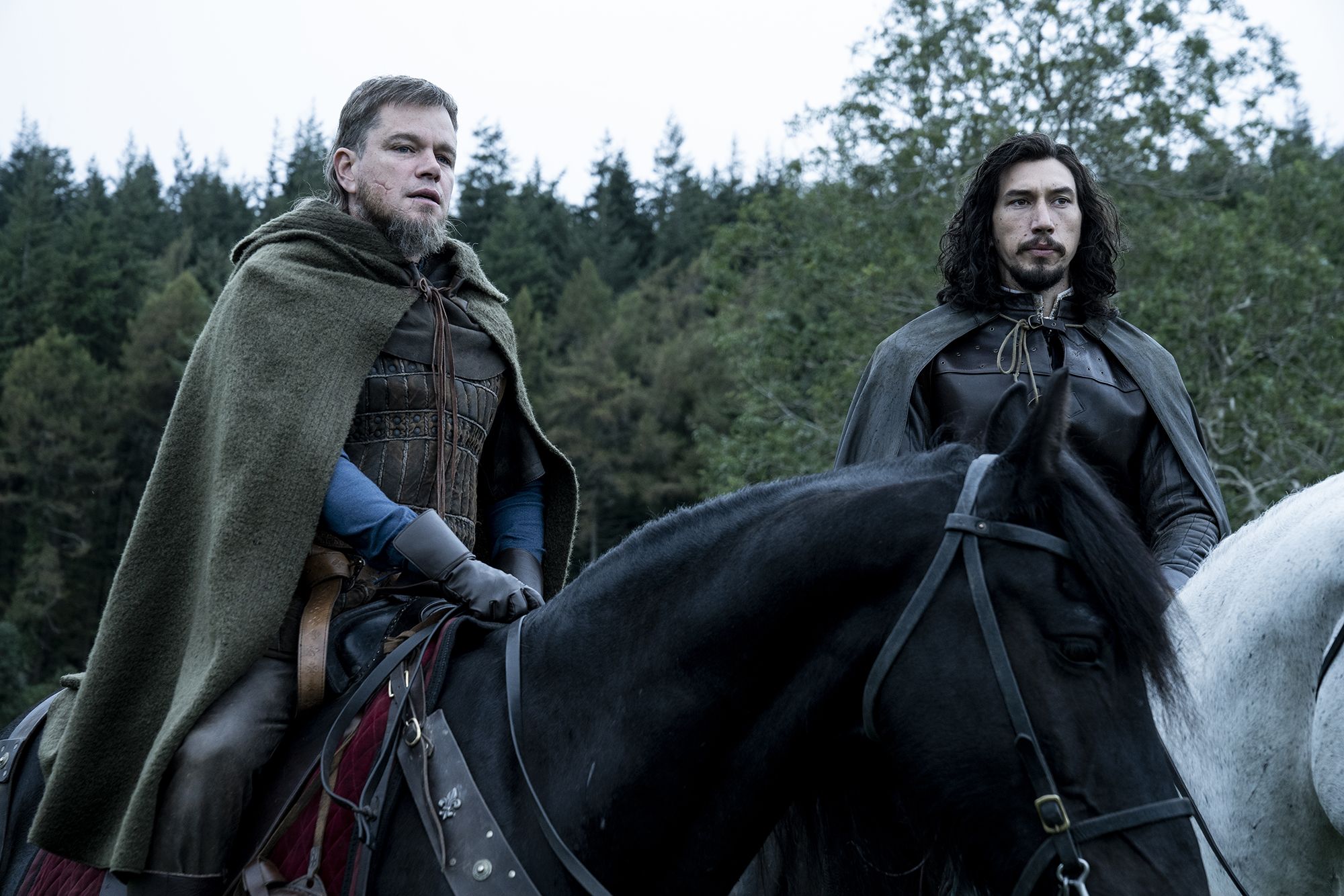Warning: This post contains spoilers for The Last Duel.
“Do you swear on your life that what you say is true?” This question, posed to Marguerite de Carrouges (Jodie Comer), encapsulates the true history behind The Last Duel, director Ridley Scott’s new film opening in theaters Oct. 15. Based on the 2004 book of the same name by Eric Jager, a professor of English at the University of California, Los Angeles and a specialist in medieval literature, the film uses its titular event—the last judicial duel in French history, held in Paris in December 1386—to delve deeply into the Middle Ages’ complex politics of gender, female agency, religious morality and sexual ethics.
At the heart of The Last Duel lies a historical mystery, still not definitively solved over 600 years later: was the noblewoman Marguerite de Carrouges raped by the squire Jacques Le Gris? But beyond the mystery itself is the surprising way that Marguerite’s story was transformed and all but erased in the centuries after the events of the film, reinterpreted to serve intellectual agendas with little consideration for the life at the center of the tale. While The Last Duel offers some vindication to Marguerite, all that came next—the story of how her life was recorded and reshaped in the historical record—reveals both how easily marginalized voices can be removed from history even by historical figures we respect and how long it can take to restore those voices to their proper place.
Read more: The 23 Most Anticipated Movies of Fall 2021
A duel as the last resort to settle a life-or-death dispute

According to Marguerite, Le Gris (played in the film by Adam Driver) traveled to her family’s chateau in Capomesnil where she was staying on January 18, 1386 and raped her. Marguerite had no one who could confirm her story: her husband Jean de Carrogues (played by Matt Damon) had set out on a journey to Paris to collect some desperately needed funds and the servants were out for the day with Marguerite’s mother-in-law.
Despite the lack of witnesses, Le Gris certainly had motive and opportunity. In his personal life, Le Gris had a reputation as a philanderer. Le Gris and Jean had once been close friends, but their relationship turned to rivalry over a dispute regarding land Marguerite’s family owned. Shortly before Jean departed for Paris, he and Le Gris confronted one another in the court of Count Pierre d’Alençon (played by Ben Affleck); Le Gris learned around this time that Jean would be leaving Marguerite alone.
Marguerite’s accusations carried serious ramifications for medieval French society. On the one hand, the punishment for rape, if proven, meant death for the culprit and dishonor for the rapist’s family. On the other, the punishment for false accusations was also death, via burning at the stake.
Attempting to win back the honor of his wife and family, Jean accused Le Gris of rape on Marguerite’s behalf to Pierre d’Alençon but, whether because Le Gris was a favorite of Pierre’s or because Pierre had feuded with Jean on the land dispute—or simply because he didn’t believe Marguerite—the count chalked Marguerite’s testimony up to a dream, a feminine flight of fancy. Enraged, Jean rode to Paris and appealed to King Charles VI, challenging Le Gris to a duel, an uncommon way for nobles to settle capital offenses. After months of futile investigation by the French courts, including Marguerite’s powerful testimony and a counter-witness by Le Gris, the courts had no other choice but to let the duel proceed, allowing God to decide the victor. As Jean Le Coq, Le Gris’ lawyer, wrote in his private diary, “No one really knew the truth of the matter.”
Though the real duel was between Le Gris and Jean, the film portrays the true conflict as Marguerite de Carrouges versus the political mores of her day, as she struggles to convince those around her, from the Church to her family to the French king to the common peasant, that what she says is true. The film splits its focus between Le Gris, Jean, and Marguerite, with Le Gris and Jean’s portions of the story written by Ben Affleck and Matt Damon and Marguerite’s written by Nicole Holofcener. However, despite this split focus, Marguerite clearly emerges as the story’s true protagonist. Jodie Comer’s powerful performance not only does justice to the woman she’s portraying, but also makes her a strong contender for this year’s awards season. If the film missteps, it is because it does not allow Comer, and consequently Marguerite’s narrative, more screen time.
Read more: 15 Unsung Moments From American History That Historians Say You Should Know About
The story gets revised by Enlightenment thinkers

However, Scott’s Duel only depicts half of Marguerite’s story. Although Jean won the duel and succeeded in defending Marguerite’s honor, the event would take on a controversial life of its own in the following centuries. Within a few decades, period chroniclers disagreed about the duel’s details and disputed Le Gris’ guilt. Some wrote, as Jager recounts in Lapham’s Quarterly, that Jean only won because Le Gris “slipped on his opponent’s blood.” Others wrote about a supposed deathbed confession by a felon who, having a last-minute change of heart, admitted that he, not Le Gris, had raped Marguerite.
Enlightenment thinkers in the 18th century adopted this revision of Le Gris’ character to advance their own intellectual agendas. Positioning itself in contrast to the purportedly superstitious Middle Ages (now reimagined as the “Dark Ages”), the Enlightenment prized rationality above all else. Figures like Locke, Rousseau and Voltaire—considered by some modern historians an early feminist—made compelling cases for human rights, gender equality and the natural dignity of all peoples regardless of age, gender or race, which makes the Enlightenment’s widespread acceptance of the medieval narrative that Le Gris was innocent and refusal to consider Marguerite’s perspective all the more surprising and even hypocritical.
One of the Enlightenment’s most scathing critiques of the Middle Ages was of its violence, particularly in capital punishment. For some, Jacques Le Gris became a martyr, a man sentenced to a brutal death by a backwards and superstitious legal system which demonized him. One of the places Le Gris’ vindication emerged was in the Encyclopédie; this project, spearheaded by Denis Diderot and Jacques d’Alembert, was one of the first modern encyclopedias and a text which articulated many of the Enlightenment’s most formative arguments. In the article on duels, lawyer Antoine-Gaspard Boucher d’Argis described how under “King Charles VI, [people] fought for so little,” offering as an example “the one he ordered in 1386 between Carrouges and Le Gris:”
the latter was accused by Carrouges’ wife of having made an attempt on her honor. Le Gris was killed in the fight and therefore found guilty; nevertheless, he was afterwards found innocent by the culprit of the crime, who declared Le Gris innocent as he laid dying. Before the duel, Le Gris had asked in all the monasteries of Paris that God should pray for him.
D’Argis’ account did not grapple with whether Marguerite’s testimony was valid, but instead chose to emphasize the duel’s injustice towards Le Gris and the futility of Le Gris’ prayers. Voltaire likewise, in his Histoire du Parlement de Paris, critiqued the brutality of the duel, as well as the fact that these duels, “regarded today as an unpardonable crime were always carried out with the sanction of the laws” and the Church. However, Voltaire only acknowledged Marguerite insofar as he claimed “all these fights were fought for women.” Neither D’Argis nor Voltaire mentioned Marguerite by name.
A revisionist history that served a broader agenda

Behind the Enlightenment’s exoneration of Le Gris were its arguments against the use of torture in judicial proceedings. According to Enlightenment scholar and University of Florida assistant professor of history Anton Matytsin, the Enlightenment sought “the end to judicial torture, the abolition of the death penalty, and the institution of proportional and humane punishments that would deter people from committing crimes … this is the main context in which they would have seen a duel: a barbaric way to settle a legal matter.” Cesare Beccaria, a leading Enlightenment thinker, “outlined how judicial torture primarily benefitted not those who were innocent and had nothing to confess but those whose physical constitutions would allow them to withstand pain.”
The Enlightenment’s celebration of Marguerite de Carrouges’ accused rapist challenges our notions of how history develops. While the Enlightenment looks more familiar to modern eyes than the more distant Middle Ages, intellectual and cultural development is not a straight line. While it is obvious now that Marguerite’s testimony deserved to be listened to, was wrongly downplayed in her own time and was ignored by later historians, for the Enlightenment’s intellectuals the story of France’s last duel was one of judicial injustice, not injustice towards women. Despite how much Marguerite de Carrouges’ tale resonates today, we must keep in mind L.P. Hartley’s words: “the past is a foreign country; they do things differently there.”
John-Paul Heil is a Ph.D candidate in early modern history at the University of Chicago and an adjunct professor of history and the liberal arts at Mount St. Mary’s University in Maryland. His scholarly work focuses on the intellectual history of virtue in Renaissance Naples. His work has appeared or is forthcoming in Smithsonian, Los Angeles Review of Books and Comment. The author would like to thank Eric Jager for his correspondence regarding this piece.
More Must-Reads from TIME
- Caitlin Clark Is TIME's 2024 Athlete of the Year
- Where Trump 2.0 Will Differ From 1.0
- Is Intermittent Fasting Good or Bad for You?
- The 100 Must-Read Books of 2024
- Column: If Optimism Feels Ridiculous Now, Try Hope
- The Future of Climate Action Is Trade Policy
- FX’s Say Nothing Is the Must-Watch Political Thriller of 2024
- Merle Bombardieri Is Helping People Make the Baby Decision
Contact us at letters@time.com